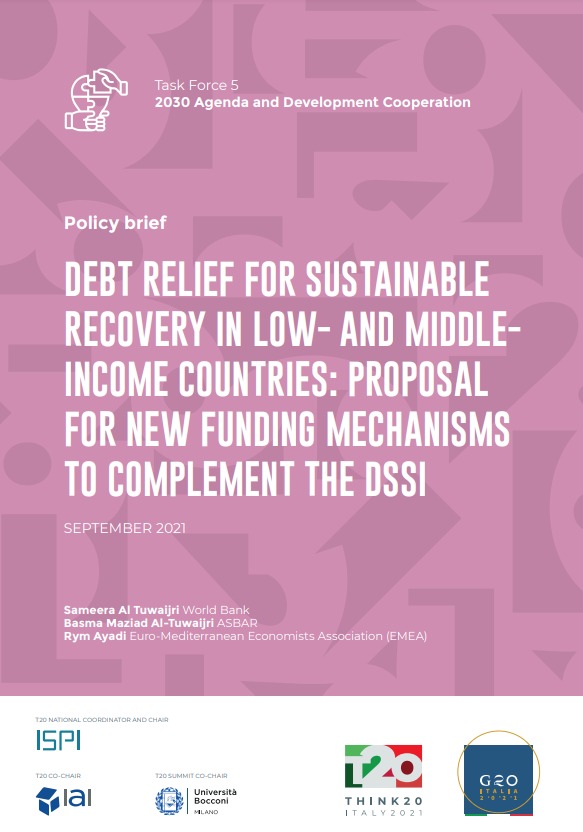Whilst the COVID-19 pandemic continues its successive waves worldwide and amidst the uncertainty about the timing and the effectiveness of the vaccine coupled with virus mutation, continuous lockdowns and social distancing measures, countries and particularly low-income countries (LICs) and lower-middle-income countries (LMICs) will continue borrowing and pushing debt levels to further heights to alleviate the social cost of the pandemic and to jump-start the recovery phase. The costs will be dire for countries that will have to restructure or default on their sovereign debts. The recovery of these countries must be aligned with the 2030 Agenda for Sustainable Development. We propose a public-private financing fund/plan, as part of global economic recovery plan post-COVID-19, fully aligned with the 2030 Agenda, to complement the Debt Service Suspension Initiative (DSSI) that should be extended to LICs and LMICs. This mechanism can be used to restructure the existing piles of sovereign debt and interest and to finance a sustainable recovery.
The mechanism would reduce uncertainty, economic hardship and sovereign debt opaqueness. Further, it would facilitate private-sector involvement in large restructurings and participation in coordinated debt relief and post-COVID-19 recovery efforts aligned with the 2030 Agenda, while fully committing to sovereign debt transparency and monitoring and placing these countries in a post-COVID-19 recovery and sustainable path for development. The Policy Brief was initially published by T20 2021 Task Force 5: 2030 Agenda and Development Cooperation, of the T20.- Home
- Team
- Research
-
-
Socio Economic Policy
Policy, Foresight and Institution TRIS Socio Economic Model Energy and Environment Territorial Resilience Research Initiative Health Policy and Economics Neuroscience Policy Research Covid-19 Policy Response Digitalisation and Artificial Intelligence Entrepreneurship & MSMEs Cultural Creative Industry Women Empowerment and Leadership
-
Money, Banking & Finance
-
Regional Integration & Partnerships
-
-
- Publications
-
-
Research
-
Communication
-
Latest Publication
Lead-Author/Editor: [lead_author]
Co-Authors/Contributors: Rym Ayadi
-
-
-
- Activities
- Events
- Latest
- Home
- Team
- Research
-
-
Socio Economic Policy
Policy, Foresight and Institution TRIS Socio Economic Model Energy and Environment Territorial Resilience Research Initiative Health Policy and Economics Neuroscience Policy Research Covid-19 Policy Response Digitalisation and Artificial Intelligence Entrepreneurship & MSMEs Cultural Creative Industry Women Empowerment and Leadership
-
Money, Banking & Finance
-
Regional Integration & Partnerships
-
-
- Publications
-
-
Research
-
Communication
-
Latest Publication
Lead-Author/Editor: [lead_author]
Co-Authors/Contributors: Rym Ayadi
-
-
-
- Activities
- Events
- Latest


